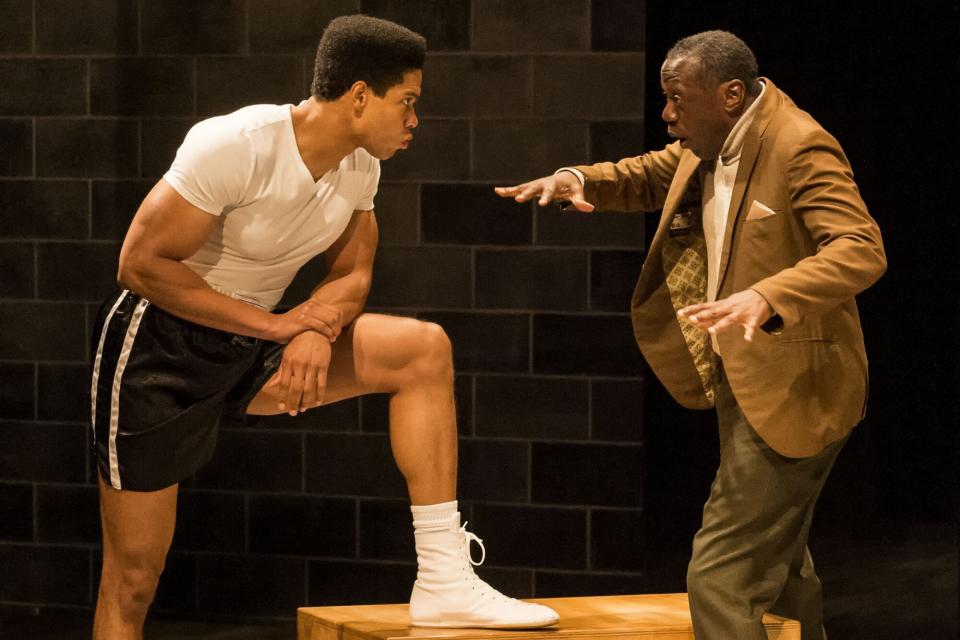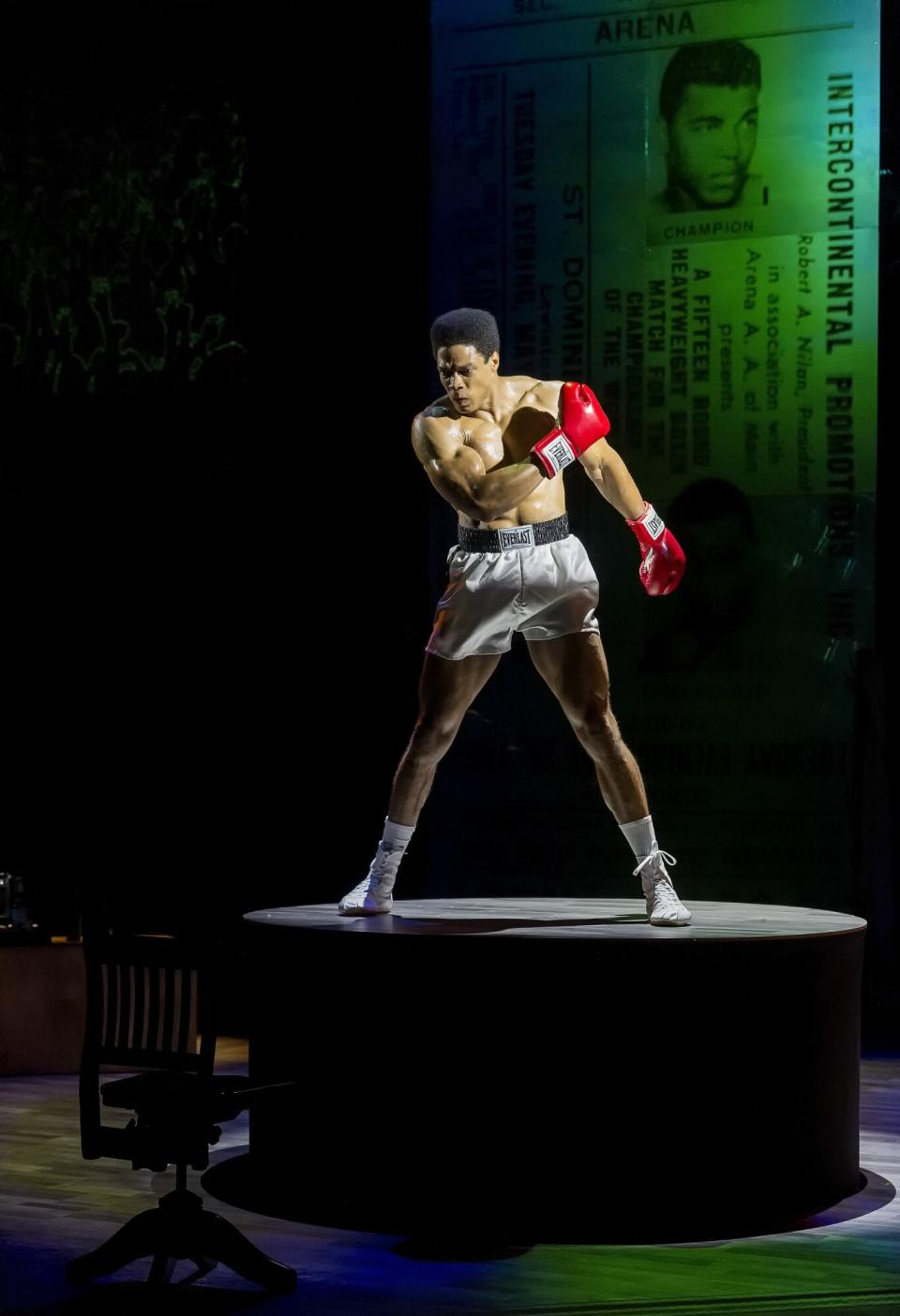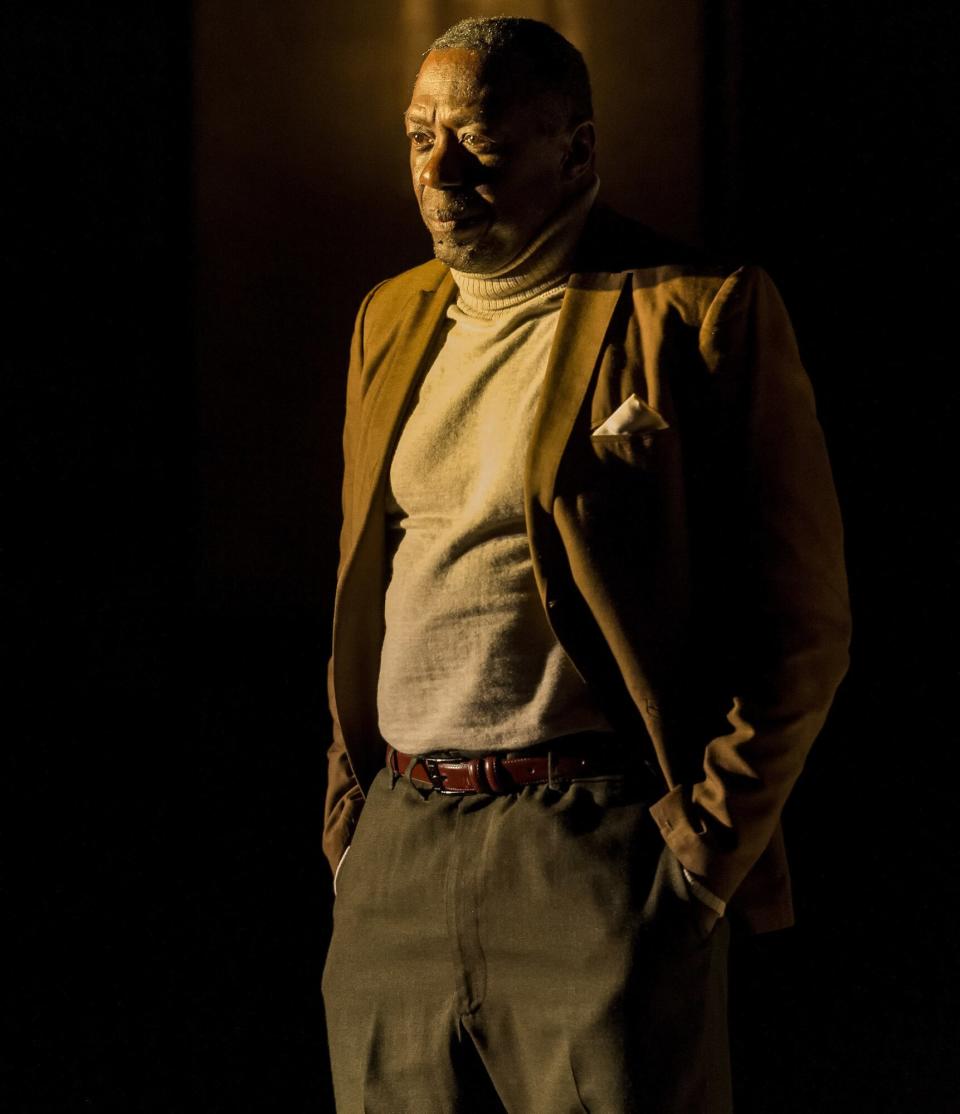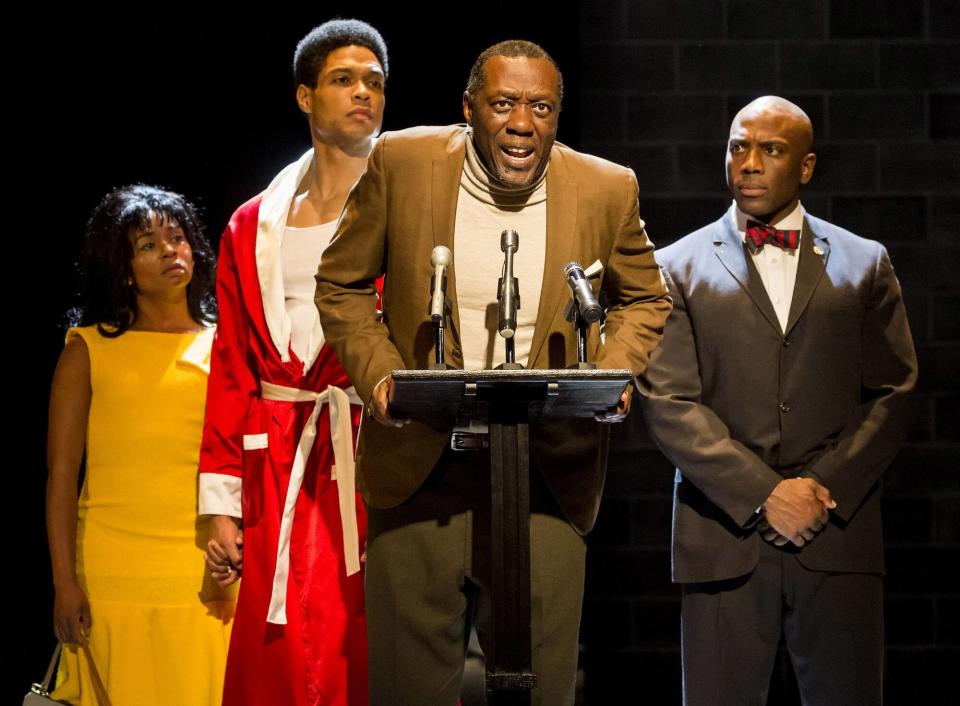Fetch Clay, Make Man review: Ray Fisher and Edwin Lee Gibson give knockout turns in uneven play
- Oops!Something went wrong.Please try again later.
- Oops!Something went wrong.Please try again later.
Fetch Clay, Make Man was inspired by a photograph — a picture of "The Greatest" Muhammad Ali and early Hollywood star Stepin Fetchit.
While Ali was a civil rights activist whose trash-talking and spoken word poetry evolved the possibilities of what a Black athlete could be, Stepin Fetchit, whose real name was Lincoln Perry, was the first Black movie star, whose portrayal of a lazy stereotype complicated his success and place among Black audiences.

Craig Schwartz Photography Ray Fisher and Edwin Lee Gibson in 'Fetch Clay, Make Man'
Fetch Clay, Make Man, produced in association with The SpringHill Company and now making its Los Angeles premiere at Center Theatre Group's Kirk Douglas Theatre through July 16, examines the legacy of the two men through their unlikely friendship. But it tries to do too much, spiraling out from their central partnership to probe Ali's fraught relationship with the Nation of Islam following the death of Malcolm X and the demise of his first marriage.
Directed by Debbie Allen, a Black entertainment icon in her own right, Fetch Clay, Make Man is an uneven production, elevated by its central performances. Ray Fisher stars as Ali, the heavyweight champion of the world in his prime. Muhammad Ali has been portrayed by plenty of actors, most notably by Will Smith, but placing Fisher in this role is an inspired choice. The actor, best known as Victor Stone/Cyborg in the DC Extended Universe, similarly put his career on the line for speaking out about racism and alleged abuse at the hands of director Joss Whedon and executive Walter Hamada.

Craig Schwartz Photography Ray Fisher in 'Fetch Clay, Make Man'
Carrying that fraught history into the room with him, Fisher offers a masterful portrayal of Ali as a fierce competitor, unapologetic activist, and spiritually conflicted man. His superhero-worthy body is sculpted to perfection, both Fisher and Ali's weapon of choice to showcase their godlike status belied by the frailty of the human underneath. Fisher, under Allen's smart direction, delivers the cadences and spoken word rhymes of Ali's speech patterns with a deliberate precision. But he doesn't let that detract from the complicated emotions swirling within the great man.
Edwin Lee Gibson (currently starring on FX's The Bear) is a remarkable foil to Fisher's forceful presence. He slips between the different faces of Perry with an adroit sleight of hand. At turns, he displays the shuffling, exaggerated caricature of the on-screen Stepin Fetchit; a toned-down version of his most famous character that serves as a useful mask; and a deep-voiced, self-assured man who is both a masterful businessman and actor.

Craig Schwartz Photography Edwin Lee Gibson in 'Fetch Clay, Make Man'
Gibson's gift is his ability to make each of these versions of Perry, with their varied physicality and vocal resonance, feel believably of one person — it showcases the ways in which Perry's code-switching enabled him to become a massive star in a racist system while also potentially compromising some crucial piece of himself. Gibson's work strengthens the contrast between him and Ali, who refuses to compromise who he is to make himself more palatable to white audiences — but who still wrestles with the truth of his identity and the impact of his image.
All of this is buoyed by the costume design (and hair and makeup choices) of Sara Ryung Clement who helps transform Fisher and Gibson into these iconic men. Then there's Pablo N. Molina's projection design, which obscures the boxing gym set with a display of real images of Ali, Fetchit, and historic moments of their lives, underscoring the cultural significance of their memories.
But all of this quite can't overcome the messiness of the writing, and attempts to do too much. Playwright Will Power has conjured kernels of a profound story, and he uses the rhyming schemes of spoken word and hip-hop to create electric passages. But this play is strongest in the back and forth of Ali and Fetchit, and each time the outside world — in the form of studio boss William Fox (Bruce Nozick), Ali's wife Sonji (Alexis Floyd), and Nation of Islam bodyguard Brother Rashid (Wilkie Ferguson III) — intrudes, it diminishes the clarity and power of the play's central conversation.

Craig Schwartz Photography
This is no knock on the performances of the other three actors, all equally on par with the work of Fisher and Gibson. But this production lacks polish — beyond the strength of its performances, the directorial vision feels indistinct, the blocking messy. The set, designed by Sibyl Wickersheimer, is strangely organized, with the need for projection screens resulting in an off-kilter, bizarre playing space. That's not to say a stripped-down approach isn't effective (one need only have seen Broadway's A Doll's House revival with Jessica Chastain to understand the potential there), but here, it feels less intentional and more unfinished.
Fetch Clay, Make Man has the makings of a fascinating bout between two pop culture icons, but its attempts to take it outside the ring of its central conceit prevent it from being a true knockout. Grade: B-
Related content:

